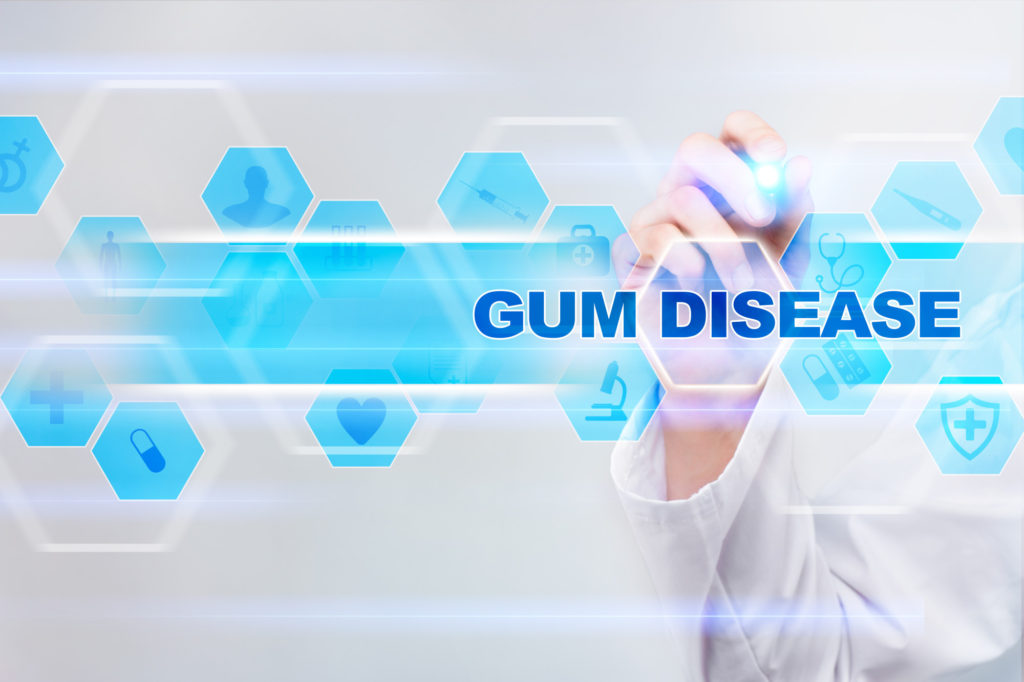
Have you noticed your gums are always sore and swollen? Has your dentist talked to you about periodontal disease in the past?
You’re not alone, as almost 46% of adults in the US show signs of gum disease, and 9% have severe gum disease. It’s important to know about periodontal disease causes so you can avoid tooth loss and chronic infections.
Periodontal disease can easily sneak up on you when you least expect it. Keep reading to learn about 10 causes of periodontal disease to watch out for.
1. Smoking and Chewing Tobacco
If you smoke, it weakens your immune system and makes it harder for you to fight off a gum infection. Smoking also changes the microbes and germs in your mouth, causing your gums to become constantly red and inflamed.
Using chewing tobacco products can cause severe gum disease over time. Chewing tobacco leads to receding gums, tooth loss, and severe infection also known as periodontitis. Long-term use can also lead to oral cancer and pancreatic cancer.
2. Grinding Your Teeth
Grinding your teeth while you sleep can not only cause periodontal disease but also worsen existing periodontal disease.
The force from grinding and clenching your teeth damages the supporting gum tissues, causing pockets in your gums and loose teeth.
3. Stress
Stress is one of those risk factors for periodontal disease that people don’t often think about.
When you’re chronically stressed, your immune system wears down. This allows harmful bacteria to invade your gums and cause a mild form of gum disease called gingivitis.
Stress also leads to teeth grinding, mouth sores, and unhealthy eating habits that all affect your oral health. All of these factors eventually can lead to periodontal disease.
4. Diabetes
If you have uncontrolled diabetes, you not only have high blood sugar in your blood but also in the saliva of your mouth.
This change in blood sugar leads to an overgrowth of bacteria in your mouth that leads to gum disease. You’ll also experience an increase of plaque on your teeth leading to further tooth decay, bone loss, and worsening gum disease.
The opposite is also true, if you have infections from untreated periodontal disease, it will cause your blood sugar to increase. This makes it harder to control diabetes and you end up with chronic gum infections.
5. Hormonal Changes
If you’re a woman, it’s important to know that hormonal changes can increase your chances of getting periodontal disease.
Surges of estrogen and progesterone cause more blood flow to the gums which makes them more sensitive to bacteria as well as the food you eat. These hormones also cause a dry mouth which causes tooth decay and gum infections.
Also, declines in estrogen during menopause puts you at greater risk for bone loss and inflammation of the gum tissues.
6. Poor Nutrition
If your diet is full of fast food and sweets, you’ll be much more likely to develop gum disease.
A diet high in sugar and saturated fat and low in fiber can cause plaque to accumulate on your teeth and eat away the enamel. This leads to gum inflammation and repeated infections.
Vitamin C is key to good gum health as it keeps your gum tissue healthy and strong. A diet lacking vitamin C leads to bleeding and sensitive gums, so make sure to stock up on citrus fruits and berries.
7. Autoimmune Diseases
Autoimmune diseases like scleroderma, lupus, and Crohn’s disease cause inflammation throughout your body as well as in your gums. People with autoimmune disease often experience gum tenderness, bleeding, and bad breath.
Also, many of the treatments for autoimmune diseases involve suppressing the immune system. This leaves your gums even more vulnerable to the bacteria already residing in your mouth.
You’re often left with a chronic gum infection that eventually results in severe periodontitis.
8. Poor Oral Hygiene
If you neglect to visit your dentist or brush and floss your teeth regularly, you’re not just setting yourself up for cavities. What many people don’t realize is the huge impact this has on gum health.
The lack of brushing leaves food particles left in your mouth leads to chronic gum inflammation, and you likely have some form of periodontal disease lurking in the shadows.
Even worse, if you don’t visit your dentist regularly, they won’t be able to spot the early signs of gum disease. Then you’ll not only be facing fillings for cavities but will likely need periodontal procedures to restore your gum health.
9. Genetics
Did you know your genetic makeup can greatly influence your overall gum health? If you have parents or siblings with periodontal disease, your chances of developing it too are much greater.
People with genetic susceptibility to periodontal disease have a greater inflammatory response to infections. They’re also prone to developing advanced periodontal disease and bone loss early in life.
10. Use of Recreational Drugs
Recreational drug use can affect your teeth and gums by causing a loss of blood flow to your gums. You’ll be much more likely to develop mouth ulcers and infections.
Drugs like cocaine are very acidic and can cause dry mouth and also increase the bacteria that already reside in your mouth. Drugs like MDMA and ecstasy can also cause you to grind your teeth constantly.
You’re also more likely to experience nutritional deficiencies and not focus on your oral hygiene while you’re using. Recreational drug use has a cascading effect and often leads to severe gum disease.
Periodontal Disease Causes
Now that you know all about periodontal disease causes, you can take steps to get your oral health back on track. Dropping a few unhealthy habits can make the world of difference for your gums.
It’s also time to visit Memorial Dentists. We are committed to taking care of not just your teeth, but your overall health. We have up-to-date dental technology and offer a variety of periodontal and dental care services that will meet your needs.
Make sure you contact us today for an appointment and give your gums a break!

